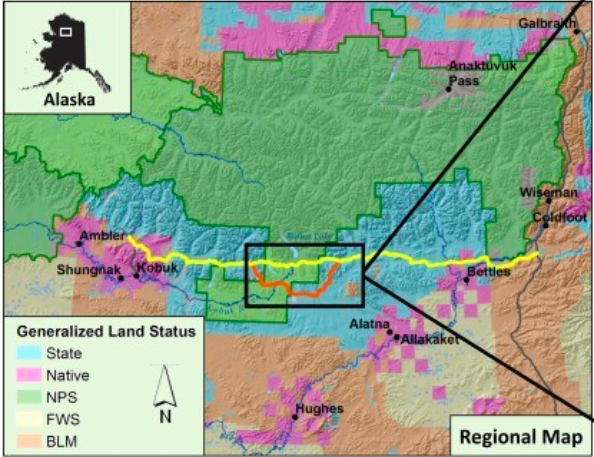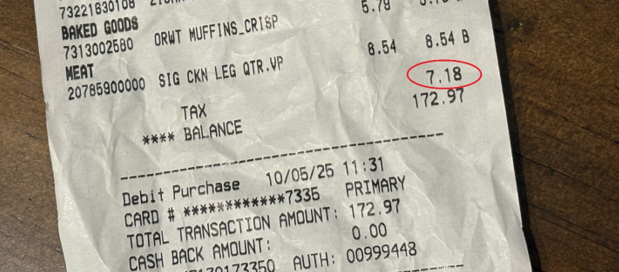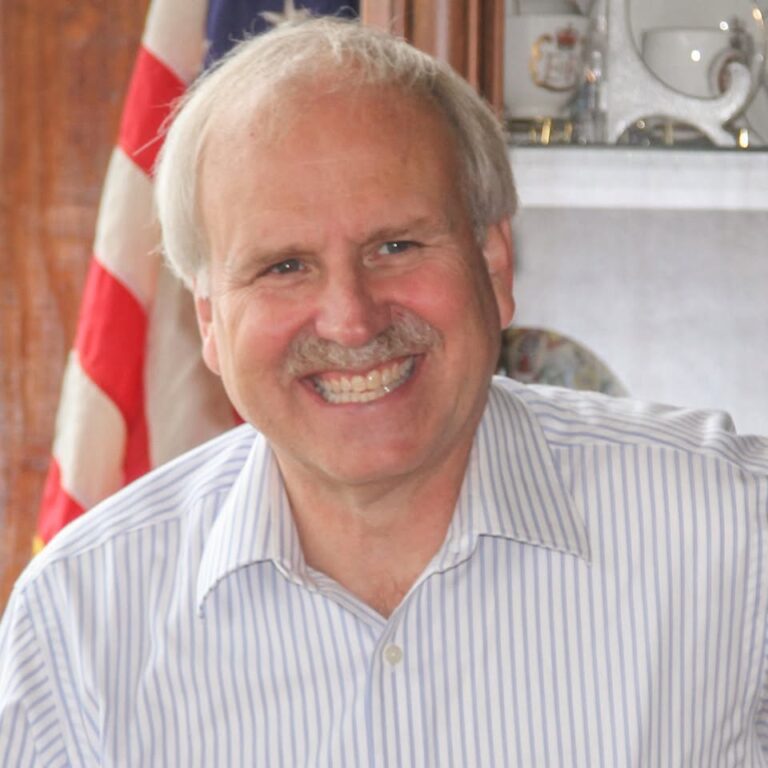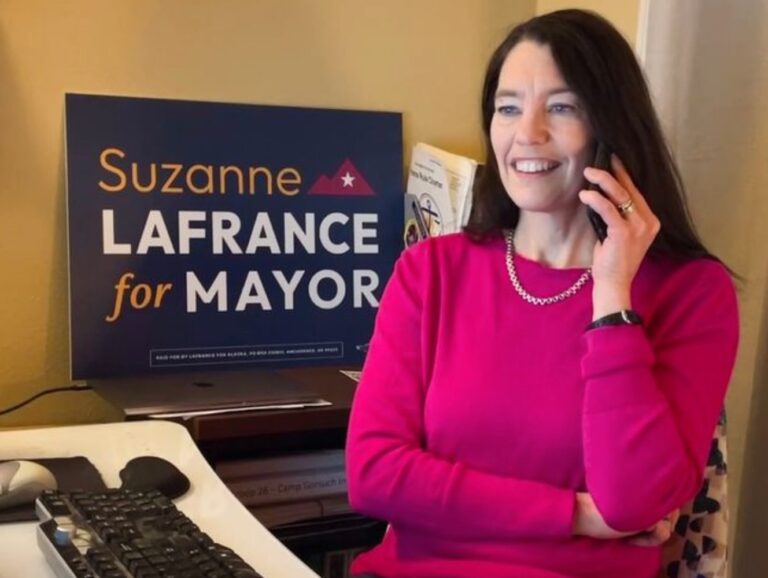By Tom Williams
Juneau’s city election day is here. If you are going to vote you must do so by 8:00 PM on Tuesday October 7th. If you haven’t voted already, you should make it a priority to do so. Why? Because this election will have major financial consequences for all City and Borough of Juneau (CBJ) residents. Either you will effectively put some guardrails around your cost of living, or you will allow the CBJ Assembly to increase your taxes and continue making poor spending decisions.
Voting YES on PROPOSITIONS 1 and 2 will help keep the cost of living in Juneau for our families from spiraling ever higher and higher as it has during the past several years.
On one hand, the Assembly never misses an opportunity to virtue signal about the high cost of housing in Juneau and the need for more “affordable” housing. At the same time the Assembly continues to increase our property taxes, pushing the cost of housing higher each time it does. In the process the Assembly continues to fill the CBJ tax coffers beyond what is needed to efficiently provide basic government services.
Passage of PROPOSITION 1 will cap the mill rate very close to what the Assembly taxed us this year for basic services: 9 mills instead of the 9.16 mills in this year’s budget. Had it been in effect this year, our property taxes would not have increased by the $1 million dollars they did. The new cap will dampen the Assembly’s ability to keep raising property taxes.
CBJ property tax revenues will still increase should property values continue to increase. In addition, the Assembly can increase their property tax revenue by actually supporting new development instead of continuing to throw up roadblocks and delays. They could also quit taking private property off the tax rolls and issuing years long tax breaks to some companies.
And don’t believe those that cry wolf saying the CBJ would not be able to respond to emergencies. The CBJ maintains reserves precisely to deal with a significant emergency. And if more funding is actually needed, the CBJ can ask the voters to approve bonds to raise necessary funds, since the 9 mill cap does not cap our voter approved bonding ability. PROPOSITION 1 will just help keep the Assembly from getting further out of control in their taxing and poor spending decisions. Please don’t miss the opportunity to vote YES on PROPOSITION 1.
Passage of PROPOSITION 2 is projected to leave an estimated $9 million to $11 millions in our families’ pockets, to help us pay other rising costs. Although this idea was considered by the Assembly as few years ago, they just couldn’t bring themselves to help our younger families deal with the ever rising cost of food and utilities. Why? They were unwilling to actually reduce the cost of living for everyone but seniors, because it would reduce the amount of money they could spend on their pet projects and programs. It took a broad-based citizen effort spearheaded by the Affordable Juneau Coalition to finally act in our families’ best interest by getting PROPOSITION 2 on the ballot. Please don’t miss the opportunity to vote YES on PROPOSITION 2.
While the Assembly has finally reluctantly agreed that we should pass PROPOSITION 2, they still showed their absolute unwillingness to reduce the cost of living in Juneau. They rushed through PROPOSITION 3, desperate to not only make up the sales tax that our families won’t be paying for food and utilities, but to actually increase sales taxes on us. Make no mistake, the seasonal sales taxes that they once didn’t like but now promote is just a smoke and mirrors tax increase. In addition, the Assembly’s PROPOSITION 3 makes their sales tax scheme permanent, taking away our historical right to vote to reauthorize a portion of our sales taxes. So much for democracy and letting the voters have an effective and ongoing role in the CBJ spending decisions. Why would any member of the public vote for this approach unless their job or program funding depended on the continued generosity of the Assembly without any genuine scrutiny of the need or effectiveness of their program or job.
Even the Juneau Chamber of Commerce has come out in opposition to PROPOSITION 3. Why? It could be that it will cost more for our businesses to implement, or it could change local spending patterns to our local business’s detriment. Passage of PROPOSITION 2 will allow the CBJ Sales tax office to eliminate their sales tax exemption administration function, whereas a seasonal sale tax will most likely require more administrative costs.
But what about those who say that without PROPOSITION 3 the Assembly will have to reduce basic services? The fact is the Assembly has made several very poor spending decisions because they have had a lot of money from overtaxing us.
Remember that the Assembly asked us pesky voters to approve their plans to spend from $20 Million to $43 Million for a brand spanking new city hall. To their chagrin, we said no, twice. Nevertheless, without asking the voters again, the Assembly will now be spending nearly $20 million after purchasing and remodeling costs, for 5-star accommodations for their city hall, with never ending condo fees of hundreds of thousands of dollars per year.
Also don’t forget their Telephone Hill planned spending. With no commitment from any private developer to build “affordable” housing on the site without any more CBJ investment, the Assembly is allocating another $9 million to just raze the buildings on Telephone Hill. Who knows just how much more they will want to spend to get more “affordable” housing built downtown, just like the failed “affordable” housing project the Assembly promoted on Peterson Hill a few years back.
And let’s not forget the Assembly’s penchant to continue providing piecemeal funding a of a $60 million plus new civic center, once again despite voter rejection. While the Assembly recently reallocated to flood control $5 million previously appropriated for the new civic center, their stated intention is to continue to pursue that project in the future, presumably with their proposed increased and permanent sales tax.
Beyond these three examples of poor major spending decisions, they continue to spend money on programs that provide very little if any public benefit. For example, the Assembly continues to send hundreds of thousands of dollars annually to the Juneau Economic Development Council (JEDC) which has done virtually nothing to actual promote or assist in any significant development in Juneau. In addition, the Assembly continues to spend hundreds of thousands of more dollars a year on mail-in voting, which has not increased voter turnout, sent printing of thousands of unused ballots to an out-of-state vendor, filled our recycling center and landfill with thousands of unused ballots, and unnecessarily delayed our election returns. Neither of these are good spending decisions by the Assembly.
Undoubtedly there are more examples of where the CBJ could absorb any temporary reduction in sales tax revenues. Clearly, if our highly paid City Manager is competent, she should be able to find efficiencies and make positive recommendations as to how to minimize the impact on the voters by tightening the CBJ’s belt a bit. If not, then we probably need a new City Manager as well as a new Assembly.
In short, PROPSITION 3 is the worst of all sales tax options, which is why it was abandoned by prior Assemblies. Please don’t miss the opportunity to vote NO on PROPOSITION 3.
Juneau has been Tom Williams’ home since 1977. Over the past 26 years he has served as the CFO for two locally owned aviation companies. Previously he spent 18 years with the State of Alaska as an auditor, a Director of two Department of Revenue Divisions, and as staff to two Senate Finance Committee Co-Chairs. His local service includes stints on the CBJ Airport Board and as chair of the CBJ Harbor Board.










